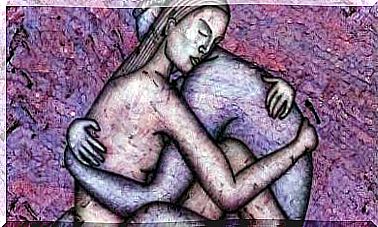Hypochondria: When The Fear Of Being Sick Becomes Real

Hypochondria or anxiety disorder (as DSM-5 calls it) is one of the most common reasons for consultation among psychotherapy patients. This disorder refers to people living in constant anxiety that are related to the fear of suffering from a disease. That’s when the fear of being sick becomes real.
Hypochondriacs tend to really fear the diseases that involve a progressive, long-term exacerbation. Some examples are cancer, AIDS and fibromyalgia. However, there are also many hypochondriacs who fear heart or respiratory diseases, which means a faster, more serious development.
One of the main characteristics of hypochondria is the fear of diseases that gradually worsen the body. Similarly, the fear of faster diseases such as heart attack or suffocation is more characteristic of a panic disorder. No matter what disease the hypochondriac fears, their feelings, experiences and actions will end up making them sick in the long run (psychologically speaking).

Although the main components of hypochondria are fear of disease and constantly aiming for diagnoses (medical tests, research, etc.), there are several psychological factors that affect development, intensity and duration.
In this article we will explain how the irrational fear of being sick becomes real. How it happens as a result of exhaustive search for control over one’s own body, one’s intolerance of insecurity and inadequate control of fear.
How the fear of being sick attracts the actual illness
In order for a person afraid of illness to develop hypochondria, several factors are necessary. Among the most characteristic psychological factors that end up making the fear of being sick real, you can find unreal expectations and preconceived ideas about how the human body should function.
The role of unreal expectations, self-control and the need for control play in the development of hypochondria
When someone has unrealistic and unfounded expectations of how the body will feel every day, any normal physical sensation (such as a contraction or a non-specific pain) becomes a warning sign that something is wrong.
Although constant pain and discomfort are signs (If I feel pain every day, then it may be true. It must be wrong), people with an irrational fear of illness interpret signs as clear indicators of a disease.
The fear of being sick becomes greater if you have a mental system that says there is something wrong with you and that you may be sick because your body feels a certain way. Hypochondria is easier to develop when you have a predetermined perception of how the body should be. This type of reasoning is quite common among people who have a low tolerance for unpleasant physical experiences. These people believe that their body will always remain the same (no new scars / defects), painless and generally “normal”.

Although physical discomfort is normal and part of being alive (the body is a constantly changing organism), if you pay too much attention to it, you will end up amplifying it. This is explained by the Gate control theory, which has scientifically proven that paying attention to a feeling in the body amplifies it, making it more intense and long lasting. Therefore, distraction techniques are some of the keys to success when it comes to psychological treatment of hypochondria.
In addition, it is not enough to just fear the disease and not endure the physical disturbances. There must be a high level of self-need and search for control for hypochondria to exist.
Avoiding being physically ill makes you mentally ill
Not tolerating disturbing physical experiences, along with demanding that the body stop feeling them and override what is happening, makes people mentally ill. Since it is difficult to participate in two things at once, if someone monitors what hurts, how much it hurts, and how it affects them, they waste their time trying to control the uncontrollable: their organism its normal way of work on.
As the physical pain becomes greater (thanks to the attention given to them), the person begins to become more and more anxious. And they start consulting doctors or going online to know what hurts or why they feel that way. The online information retrieval process is very dangerous. It can provide them with information that they may end up using against their body, also known as self-fulfilling prophecy.
Getting a negative diagnosis (there is no real disease in hypochondria) will make the person feel temporary peace. However, it is possible that this will make them dependent on professionals’ opinions. When hypochondriacs are put in the position of a “sick person”, they begin to see themselves as that, which is not true.
How can we deal with the fear of being sick?
The mind is very powerful and it often “chooses” the wrong path very confidently. Doubting what professionals tell you and insisting that you are still sick even if doctors tell you otherwise is not the right way to control how you feel. When it comes to hypochondria, the person must realize that exhaustively looking for medical evidence makes them live in fear. They must assume that they are wrong, even though they are convinced that what they are feeling is real.

The fear of being ill is normal and adaptive. This fear is helpful and makes us take safety precautions. However, looking for in-depth information about the alleged symptoms is not the right way to deal with this anxiety. First, they must stop having to control every physical sensation and get medical tests. So that they can leave the role of “the sick person”.
Second , they must understand that the problem is not the actual disease. It is the intolerance of the fear of it, which becomes greater every time they do something to calm it down. It is important to realize that fear is not the problem. The real problem is the way the person handles their fears. This is what develops hypochondria.
Working with the fear of being sick is a good way to learn to deal with it. You should investigate why it happens, what can be done about it, and also try to accept it. Working with a psychologist is an excellent way to try to learn to deal with fear, including the fear of being ill.
Failure to deal with this fear means that you are likely to experience a psychological illness.









